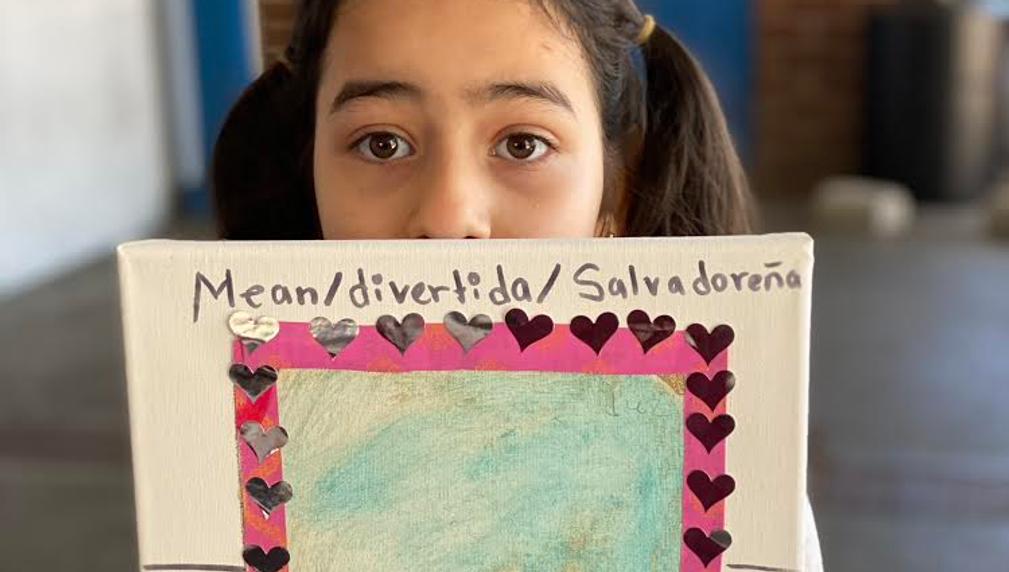Support Services for Refugee Children
The Refugee Children Center provides social, emotional, and mental health services to children and youth. Through weekly community events and activities that promote wellness, the RCC creates opportunities for our children and youth to heal and grow, while developing healthy relationships with caring adults and bonding with other youth their age. We serve children and youth ages zero to nineteen years old.

What is the primary issue area that your application will impact?
Immigrant and Refugee Support
In which areas of Los Angeles will you be directly working?
San Fernando Valley
In what stage of innovation is this project, program, or initiative?
Pilot or new project, program, or initiative
What is your understanding of the issue that you are seeking to address?
After being forced to leave their home countries and embarking on long and arduous journeys to arrive in the United States, our children and teens are additionally face having to learn a new language and adapt to a new environment. With their parents or caregivers having to focus their time and energy on working incessantly in order to survive, it can be extremely difficult to focus on the wellbeing of newly arrived children and youth. As such, our Center serves as a place of healing and embrace through holistic support to children, youth and adults who are refugees from Honduras, Guatemala and El Salvador. Our wellbeing programming is essential to the present and future of our children and youth, as it is a component that welcomes them into their new home and encourages them to realize their potentials. In our wellness programs, our children and youth access unique opportunities, as it is created specifically for them to realize that they are valued and respected in their new home.
Describe the project, program, or initiative this grant will support to address the issue.
The wellness programming that we began at the RCC has gathered more participants on a weekly basis. Each Saturday, we focus on a different aspect of wellness. We implement an occupation-based wellness focus for refugee children and youth based on the psychosocial and social-emotional needs through meaningful activities. The eight general dimensions of wellness are: emotional, spiritual, intellectual, physical, environmental, financial, occupational and social. Recovering from trauma is a unique process of regaining or gaining physical, spiritual, mental and emotional balance. Using the wellness approach we identify goals, preferences, interests and strengths to give youth opportunities to assume or resume valued social roles for quality of life. Generally and through this initiative, we aim to help our participants develop all of their aspects of wellness, giving them a sense of independence and self competence. Our families increasingly attend this program, demonstrating that they feel a sense of security. This project is specifically addressed towards refugee youth transitioning into the United States to support their health in multiple stages and aspects of their lives. It is unique, as it began as a collaboration with an occupational therapy student developing an occupational-based wellness program for her study with the guidance of a licensed occupational therapist The program is intended to be replicated and sustainable to help children and youth coming to the center.
Describe how Los Angeles County will be different if your work is successful.
The purpose of our Center itself is to support refugee-seekers in their transition to this country. Through initiatives like our wellness program, we hope to begin preparing the migrant adults of tomorrow to succeed in their community, Los Angeles County. Rather than feeling like they do not belong here, our purpose is to make our youth realize that this country is also their home and that they are welcome and accepted here so that they can develop and lead healthy and successful lives as Angelinos. Since the start of the program, about two months ago, we have been able to see more and more children and youth practice the wellness skills that they are learning as they become more comfortable with themselves and with each other. Over this year, we hope for the attendance to continue growing and to remain stable. Furthermore, we hope to continue offering and expanding our wellness programming so that in turn our youth can share their healing and knowledge with other children and youth.
What evidence do you have that this project, program, or initiative is or will be successful, and how will you define and measure success?
We began assessing the program by how confident our participants feel in certain aspects, such as finance, social skills, emotional skills, etc. and with a self reflection tool as well. We gather their ratings before and after the program to see if their confidence changed or improved. The assessment is called Child Occupational Self Assessment (COSA). The self-reflection tool is called Self-Care Wheel. On a larger scale, we assess the program through the growing attendance levels of our participants. Through COSA, we assess the positive development of their social skills and their awareness of the eight dimensions of wellbeing. With additional funding, we will allocate more time and resources to our Children and Families Coordinators, specifically for direct services towards the well-being of our children, along with bringing facilitators on board to support this effort. The program will sustain and grow as more resources and staff are allocated to it, with additional funding.
Approximately how many people will be impacted by this project, program, or initiative?
Direct Impact: 200
Indirect Impact: 5,000